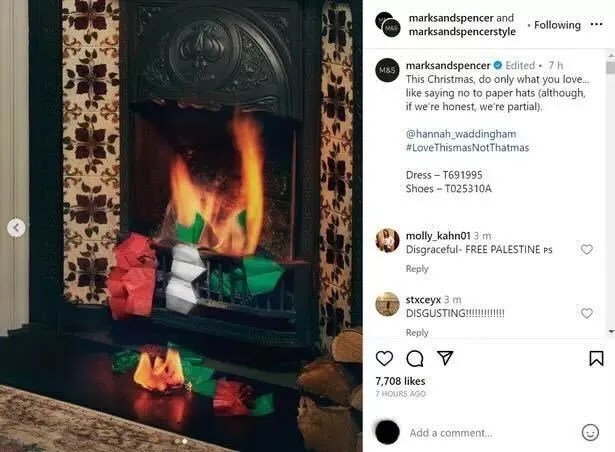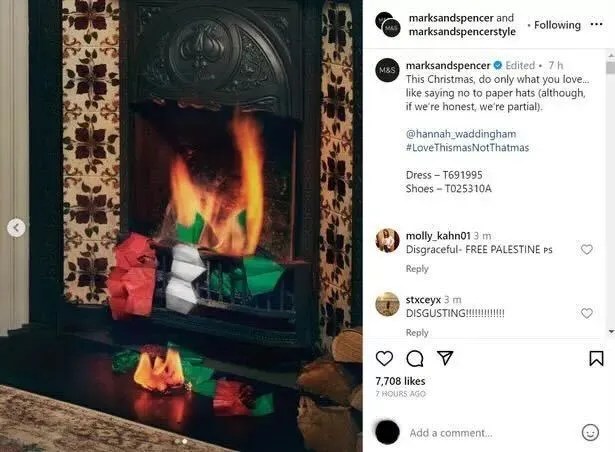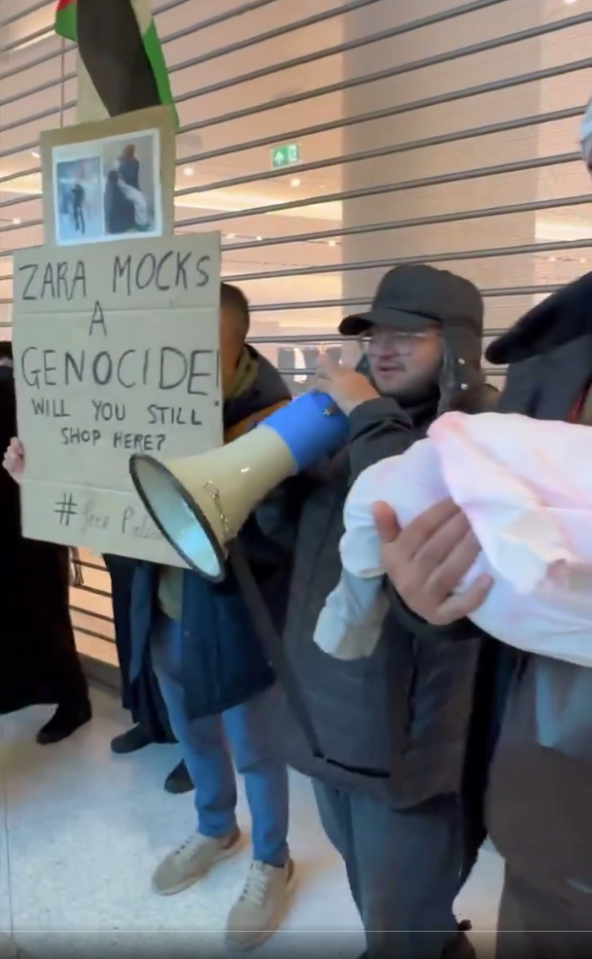Big brands like M&S and Zara must stop capitulating to activist intimidation over war in Gaza

Big brands must stop caving into bullying tactics of protesters who launch damaging and spurious campaigns to gain a few inches in the online trench warfare over Gaza.
The war between Israel and Hamas has led to calls to boycott firms for supposed support or links to Israel.
While this is nothing new, there has been a pernicious new form of intimidation, whereby brands have been targeted because of baseless and imagined offence. And they have done the worst thing imaginable: buckled.
Let’s start with Marks & Spencer, which showed some of the worst corporate cowardice earlier in the year.
It released a Christmas advert, filmed in August, before the war started on 7 October.
The advert showed red ,green and gold Christmas hats in a fire place, as is traditional for some people.
The internet lost its mind.. you’re burning the Palestine flag?
No, nobody was burning the Palestinian flag. That would be incredibly offensive, obviously.
Thousands of people commented on it and shared the image online, urging people to boycott the store, and claiming it had concocted the advert deliberately to cause harm.
But instead of just rejecting this unhinged accusation, Sparks released a statement, which caved into demands, saying: “While the intent was to playfully show that some people just don’t enjoy wearing paper Christmas hats over the festive season, we have removed the post following feedback and we apologise for any unintentional hurt caused.”
No unintentional hurt was caused.

It’s called acting in bad faith, choosing to be offended about something.
Next, Zara, which launched an advertising campaign featuring mannequins, filmed long before the 7 October attack on Israel, and its military response.
The online boycott brigade accused Zara of using imagery from the war, and threatened boycotts unless it was removed.
Despite Zara releasing a statement and removing it, the protests continued.

“The campaign, that was conceived in July and photographed in September, presents a series of images of unfinished sculptures in a sculptor’s studio and was created with the sole purpose of showcasing craftmade garments in an artistic context.
“Unfortunately, some customers felt offended by these images, which have now been removed, and saw in them something far from what was intended when they were created,” the statement concluded. “Zara regrets that misunderstanding and we reaffirm our deep respect towards everyone.”
Why apologise?
Why remove them, if it has nothing to do with it?
It’s an admission of weakness, and gives the appearance of having done something wrong, when it hasn’t.
This weekend, three were arrested for ‘shutting down’ a Zara store, while Twitter has been filled with images of groups outside stores, waving flags, and accusing Zara of complicity with Israel.
It’s not just Zara and Marks & Spencer which have been intimidated.
During the last two months, countless videos have been posted online of Palestine protesters at London branches of chains including McDonald’s, Starbucks and Burger King, harassing people going in and out.
McDonald’s and Burger King franchises in Israel supposedly gave meals to soldiers, which therefore makes them – and their customers – legitimate targets for intimidation.
One man, who was since arrested, actually painted rodents in the colours of the Palestinian flag and released them at a McDonald’s branch.
You can’t reason with this kind of logic.
The correct response to these types of spurious and conspiratorial claims, was shown recently, by the BBC.
Ironically this involved the other ‘side’ of this war, featuring a toy octopus and a jacket.
Bear with me here.
The eight legged animal appeared on University Challenge as a mascot, alongside a woman wearing a headscarf, and jacket.

Some corners of the internet erupted, claiming the octopus invoked Nazi imagery, and her jacket was a Palestinian flag, and therefore the BBC was secretly supporting Hamas, or something.
Unlike M&S or Zara, the BBC didn’t apologise for offence caused, because the claims being made were completely ludicrous (and clearly targeting the one visibly Muslim contestant, which is all too convenient).
The BBC issued a statement, dismissing “inaccurate claims”, condemning personal abuse towards the contestant, and adding that “the jacket worn by one of the contestants was navy blue, orange, pink and green, bought from a High Street retailer. It has no connection to any flag.”
It added that “for the avoidance of doubt, this episode was filmed in March”.
It later emerged her jacket was actually available at…. You guessed it: Zara.
The lesson of all of this, is companies need to stand firm against online rent-a-mobs.
Once they apologise for something they haven’t done, it is in effect legitimising manufactured anger in order to gain a few inches in the online war for hearts and minds.
There are perfectly legitimate arguments against companies’ ties to this war, or indeed any war. We don’t need to create imaginary ones.
